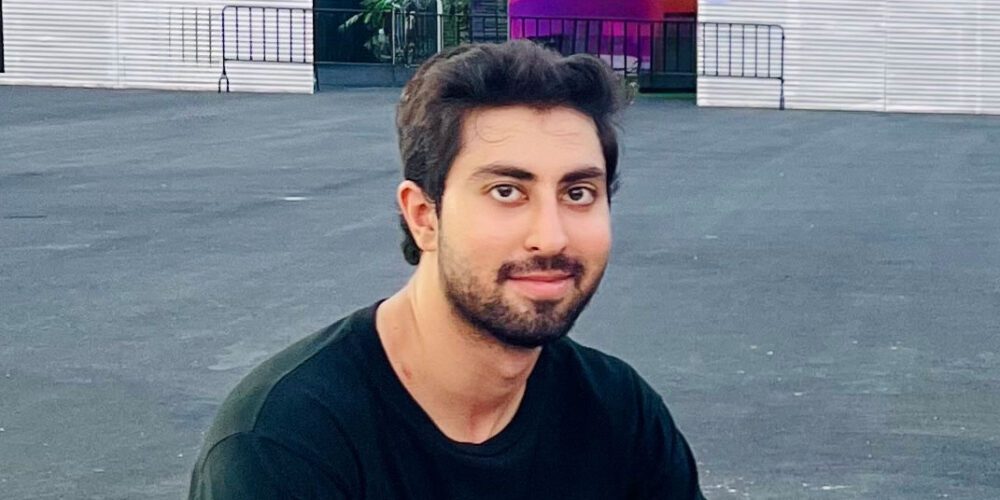Think before you post: the impact of sharing photos of your child online

The practice of parents sharing content of their kids online is so commonplace, it’s spawned its own term, ‘sharenting’. But before you post that cute or funny photo, it’s worth considering the effect it can have on your child.
Whenever we go online, we create a digital footprint — a trail of information left by the things we share and do on social media, websites and apps.
The digital footprints of today’s generation are being created even before they’re born with parents sharing pregnancy photos, ultrasound images and advice on online parenting forums.
Curtin University’s Professor Tama Leaver and Dr Anna Bunn are researching the repercussions of a life documented online and the rights children have in this space.
Sharing more than you realise
At the ARC Centre of Excellence for the Digital Child, Professor Tama Leaver is a chief investigator on the Connected Program looking at how children’s data is captured, analysed and used, and how it can be more responsibly managed.
“Many parents are too naive when it comes to sharing their children’s information online,” he says.
“They don’t understand the amount of data that can be ascertained from images and videos and how it can be used.
“When you post a photo online, you’re not just sharing the photo. You’re also sharing the metadata behind it — the time, date and location. All of which can be collected by social media platforms and used to create a profile of your child.”
Worryingly, Leaver believes the moments we are most likely to share are those when online privacy is furthest from our minds.
In his 2018 study, Leaver found this to be the case with parents sharing ultrasound images.
“You’re euphoric when you see that first ultrasound. You want to share the good news. But we found people were taking a photo of the ultrasound screen with all of the metadata embedded. You could see the mother’s name, the predicted date of birth and the hospital they’re in.
“You don’t realise at the time, but you’re actually giving away really valuable information about your unborn child.”
Content beyond control
Dr Anna Bunn’s recent research examines the implications of unwanted distribution of content on children and young people.
Once content is uploaded online it can be difficult to control how it is used and distributed, even once deleted.
“Images can easily be manipulated or used as the basis of a meme,” says Bunn.
“They can be used for teasing or even cyberbullying, which has the potential to seriously harm a child’s self-esteem.”
According to Bunn, image-based cyberbullying has consistently been the most impactful.
“An embarrassing or revealing image can mortify a child. And if it’s widely distributed and they have no power over who sees it and on what terms, the child can lose their sense of control and autonomy.
“Even an image that parents consider to be fine or cute may not be seen that way by the child, leaving them quite distressed.”
The importance of forgetting
As harmful as unwanted images can be, there is limited recourse for Australian children to have them removed or erased.
“There is no overarching right to privacy. While there are laws against any sexualised or revealing content, you can’t stop someone taking a photo of you or your child in the street and pretty much doing what they like with it,” says Bunn.
Bunn’s research points to overseas laws that could be introduced to provide better protection for Australian children.
“The European General Data Protection Regulation gives children the right to object to the processing of their data or call for it to be removed. It’s not absolute, but the right to erasure can give back some control.”
Although difficult to achieve in an era of Google and social media, Leaver also believes the right to erasure, or more commonly known as ‘the right to be forgotten’, is worth striving for.
“Being able to forget and move on from embarrassing moments matters. Children should have the same rights as their parents and grandparents and not have everything they’ve done as a child and teenager searchable online, following them into adulthood.”
Literacy the key to privacy
While better legal protections can help, both Bunn and Leaver agree that a safer, more private future relies on better digital literacy and practices from parents, educators and children.
“Model and ask for consent. Even if they’re young and don’t fully understand, get into the habit of asking them if they want their picture taken. Give the them tools to be able to say ‘I’m not comfortable with that’ or ‘I don’t like that photo, please take it down’,” Bunn advises.
Leaver also stresses the importance of being literate in our use of online tools.
“Take the time to understand how privacy settings work and if there isn’t a need to share something publicly, don’t,” he says.
“We don’t know the full impact of our kids’ data because we don’t have generations who have lived long enough to see what a digital footprint from birth to eighty years old looks like. However, we do know that parents are the first arbiters of their children’s digital history — and we need to take responsibility for that.”
Hear more on The Future Of podcast
This article was inspired by an episode of The Future Of, the podcast where experts share their vision of the future and how their work is helping shape it for the better.
Subscribe to The Future Of on your favourite app or read other articles inspired by the podcast.
Researcher profiles
 Dr Anna Bunn is a Senior Lecturer at the Curtin Law School. She has a master degree from Oxford University and her PhD focused on children’s right to control their image online. Her research interests include law and technology; privacy, image and personality rights; torts; legal and policy issues around health; and child rights.
Dr Anna Bunn is a Senior Lecturer at the Curtin Law School. She has a master degree from Oxford University and her PhD focused on children’s right to control their image online. Her research interests include law and technology; privacy, image and personality rights; torts; legal and policy issues around health; and child rights.
 Professor Tama Leaver is a Professor of Internet Studies at Curtin University, the Vice-President of the Association of Internet Researchers (AoIR) and a Chief Investigator in the ARC Centre of Excellence for the Digital Child.
Professor Tama Leaver is a Professor of Internet Studies at Curtin University, the Vice-President of the Association of Internet Researchers (AoIR) and a Chief Investigator in the ARC Centre of Excellence for the Digital Child.
His research interests include digital childhood and infancy online, visual social media, social media, digital death, mobile gaming and the changing landscape of media distribution.



